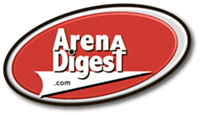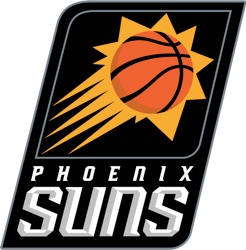Arizona‘s major sports arena scene is in something of a state of flux, as both the Arizona Coyotes and Phoenix Suns continue to pursue projects.
There has been some uncertainty about how the Coyotes will proceed with their pursuit of a new arena. The team’s proposal for a new arena and adjacent mixed-use in Tempe was scratched its prospective partner, Arizona State University, revealed that it was leaving the project.
ASU has already indicated that it will continue with its own search, while the Coyotes may still receive some help from the state. State senator Bob Worsley has come forth with a bill that provides the framework for a private/public partnership on a new arena for the Coyotes.
Taking a concept similar to the proposed special taxing district that was previously floated for the arena in Tempe, Worsley has modified it in a way that it could be applied to the Coyotes at another location, such as downtown Phoenix or somewhere in the East Valley. The proposal that provides the framework for funding a $395 million project was advanced by a senate committee on Tuesday, but still has some ways to go before it can receive full approval. More from AZ Central:
The bill would allow creation of “community engagement” districts of up to 30 acres. Within them, up to half of the state’s share of sales taxes generated from retail sales and hotel stays would be dedicated to paying the bond debt for new sports or entertainment facilities.
It also would allow an additional 2 percent district sales tax to be applied to all purchases within the district, with those revenues also dedicated to defraying the cost of facility construction.
The state sales-tax rate is 5 percent, feeding Arizona’s general fund that pays for K-12 education, community colleges, universities, prisons, health insurance for the poor and other services.
The bill further requires the user of the facility and the city in which it is located to pay up to half of construction debt.
In the case of the Coyotes, the plan envisions public funding covering 57 percent of a new arena’s cost, with new sales taxes covering $170 million and the host city contributing $55 million. The Coyotes said the team’s portion would be $170 million, amounting to a 43 percent contribution toward the $395 million total cost.
Elsewhere in Arizona, the Suns have been looking at their own arena options. The team has made it known that it wants wants an alternative to playing at Talking Stick Arena–the downtown Phoenix venue that opened in 1992–in its current state.
Thus far, the Suns’ effort has seemed to be separate from that of the Coyotes, leaving each team to pursue their own arena projects. For their part, the Suns say that they are not completely dismissing the idea of eventually partnering with the Coyotes on a new venue.
The issue, however, according to Suns president Jason Rowley, is that the team is still vetting its arena options. Rowley stressed that the Suns want to look at their best possible routes before proceeding with any proposal. More from Arizona Sports:
Rowley was hesitant to talk about how a hypothetical relationship with the Coyotes would work, but noted he understands why the concept would arise.
“It’s clearly something that a lot of people have a lot of interest in, as do we,” he said. “But our position is we want to make sure that we are making the best decisions possible in the long-term, taking all the facts in that we need to take in to consider.
“Would we foreclose the possibility of ever being in a building with the Coyotes? No, but at the same time, we know what building we have, we know what that building could potentially be turned into with maybe some significant dollars for a remodel to get to the position of being, essentially, a new building, as compared to going out and scrapping it, abandoning a building out in Glendale that has had a lot of money put into it over the years.”
Both teams still face some unanswered questions that need to be addressed. As the Suns decide their process, the bill for the Coyotes will still be discussed in this state legislative session, which is slated to conclude in April.


